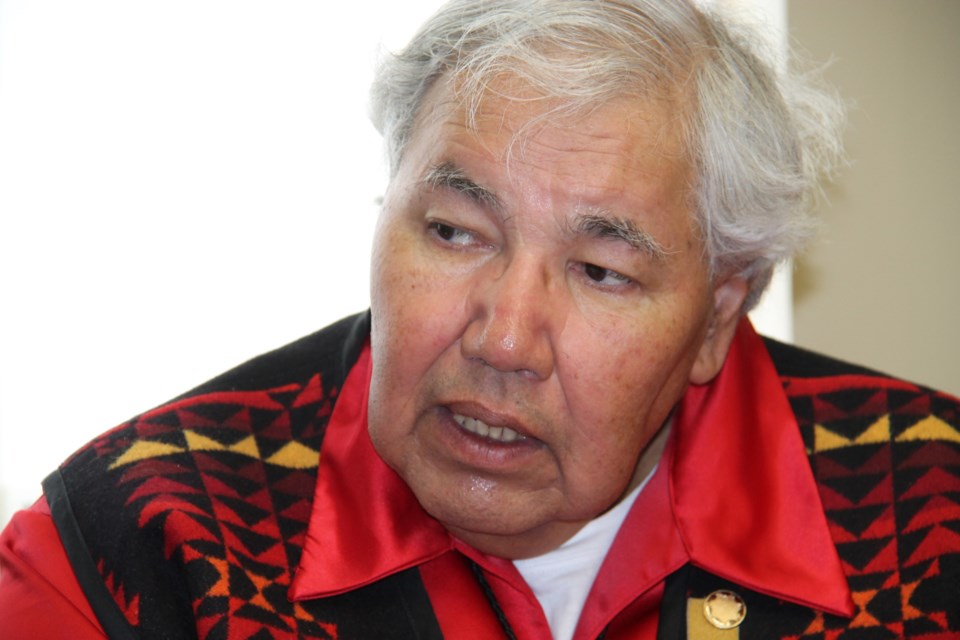Senator Murray Sinclair is cautiously optimistic about a formal apology issued by Ontario Premier Kathleen Wynne in the Legislature Monday.
The apology acknowledges the suffering experienced by First Nation, Metis and Inuit people in residential schools across the province under past Ontario governments.
The apology came in response to the 94 recommendations contained in the Truth and Reconciliation Commission's report, issued in June 2015.
Monday's apology also comes with an announcement of $250 million in provincial funding over three years for new initiatives concerning indigenous people in Ontario.
"The apology is always significant but it always has to be followed by action," Sinclair told reporters at Algoma University Monday morning.
Sinclair, a native of Selkirk, Manitoba, was Canada's second aboriginal judge and served as head of the Truth and Reconciliation Commission.
He was appointed to the Senate April 2, 2016.
Sinclair was in Sault Ste. Marie to receive an honorary degree from Algoma University (which operates on the site of the former Shingwauk Indian Residential School).
Sinclair was scheduled to receive the honour Monday afternoon from Shirley Horn (Algoma's chancellor and a residential school survivor) and Craig Chamberlin, Algoma University president.
"The words (of the apology) in and of themselves are meaningless if there's no action to them . . . so it's important to change behaviour," Sinclair said.
The details of the $250 million in provincial funding still need to be understood, Sinclair said, but added he applauds it because it is aimed toward a better relationship with indigenous people.
"I would hope the government of Ontario would see the wisdom in engaging with the indigenous community, the Metis and the Inuit people to ensure that money is utilized in a way that benefits the communities and the people at the local level, and doesn't go to projects that don't have that much significance to them," Sinclair said.
One of five points in the funding announcement deals with creating a "culturally relevant" justice system for Ontario's indigenous people which includes a restorative justice approach.
It's "absolutely" important to establish indigenous law for indigenous communities as part of the legal system going forward, Sinclair said.
"From the traditional indigenous perspective . . . there's no top-down approach, it's a consensus-based approach to developing a solution and a recognition of the need to engage in a process that improves the relationship that person (an offender) is having with the community."
A year after the Truth and Reconciliation Commission's recommendations were issued, does Sinclair have a sense reconciliation is truly in the air?
"When we issued our 94 calls to action in June 2015 we presented them to a government that was not interested in hearing them or implementing them," Sinclair said.
"The people of Canada were really keen to figure out what to do about the history of residential schools and the damaged relationships that resulted."
"(As a result) there have been changes since June 2015 and it's not because of the government, it's been because of the people (indigenous and non-indigenous)," Sinclair said.
What of his honorary degree from Algoma University?
"I think the university here has shown its intention in the past to ensure the relationship with indigenous people, its' responsibility to the indigenous people in this area is recognized, but there's always more work to be done."
Sinclair said he acknowledges universities in Ontario and across Canada are currently facing financial challenges, but said he hopes indigenous students and programming won't be the first to suffer from any difficult financial decisions universities may have to make.
